Dave Reimer’s career as a commercial diver throughout Ontario spanned 43 years. When he retired he went on to saving lives of scuba divers and enhancing or saving the lives of others who have never been under water.
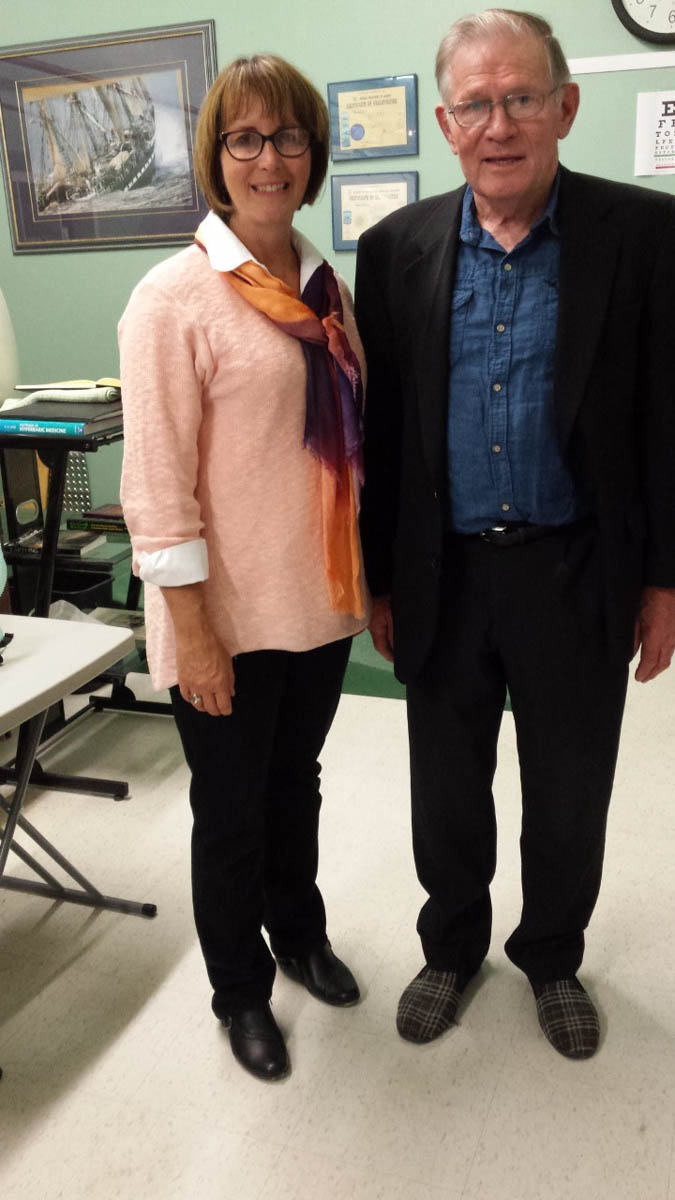
He opened Reimer Hyperbarics of Canada in 2000 in Hamilton, Ontario and moved it to Elmira, Ontario, in 2009. It involves a hyperbaric chamber, which used to be known as a decompression chamber. He had an opportunity to buy a huge chamber of high quality steel. All the paper work was with it. He finished his design on the chamber and submitted the drawings, which were approved.
Divers discovered the benefits of decompression years ago and it saved many scuba enthusiasts from what then was called “the bends.” Reimer says a scuba diver goes down with a tank of normal air mixture of 21 per cent oxygen and the remainder is nitrogen.
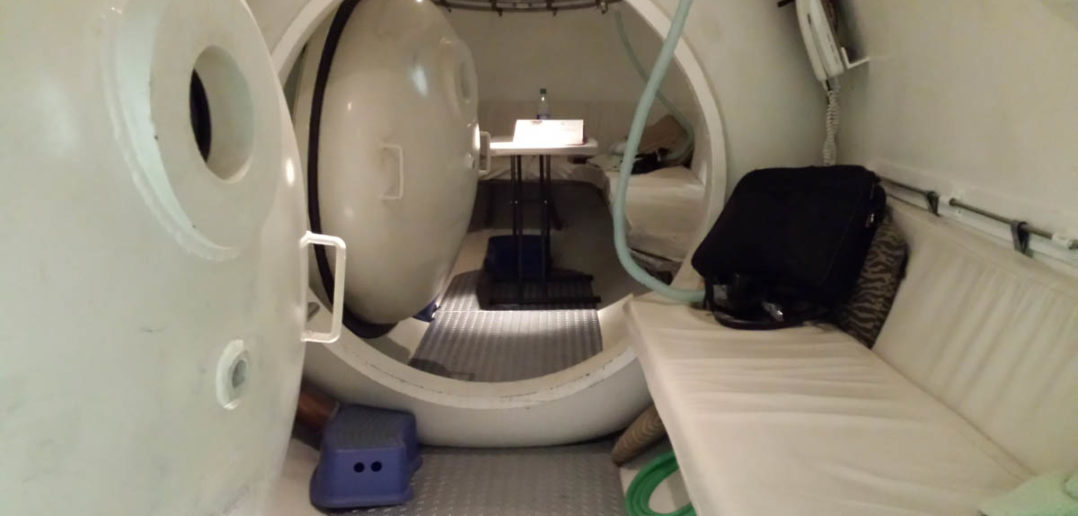
“If you come up too fast the bends hits your joints right away. It’s like a vapour lock. You are not getting the blood flow to the brain. It is restricted by nitrogen bubbles in the blood. The more nitrogen in the system the longer it takes to get rid of it. The body uses the oxygen but not the nitrogen,” says Reimer. To avoid the bends the solution is to come up slowly, reducing the pressure.
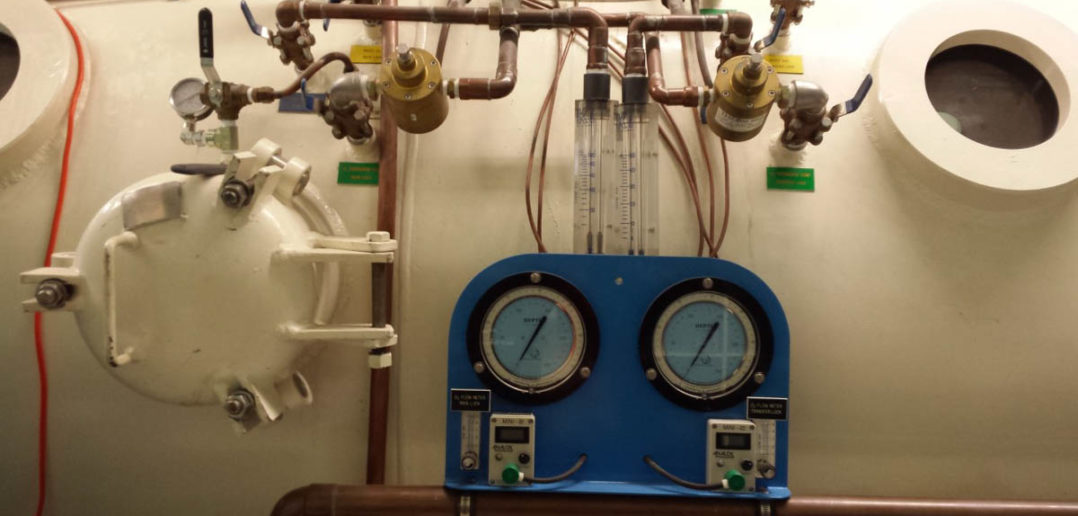
His website points out that hyperbaric oxygen allows the body to incorporate more oxygen into blood cells, blood plasma, cerebral spinal fluid and other bodily fluids. By raising the atmospheric pressure above one atmosphere (sea level), more molecules of oxygen are compressed into the body.
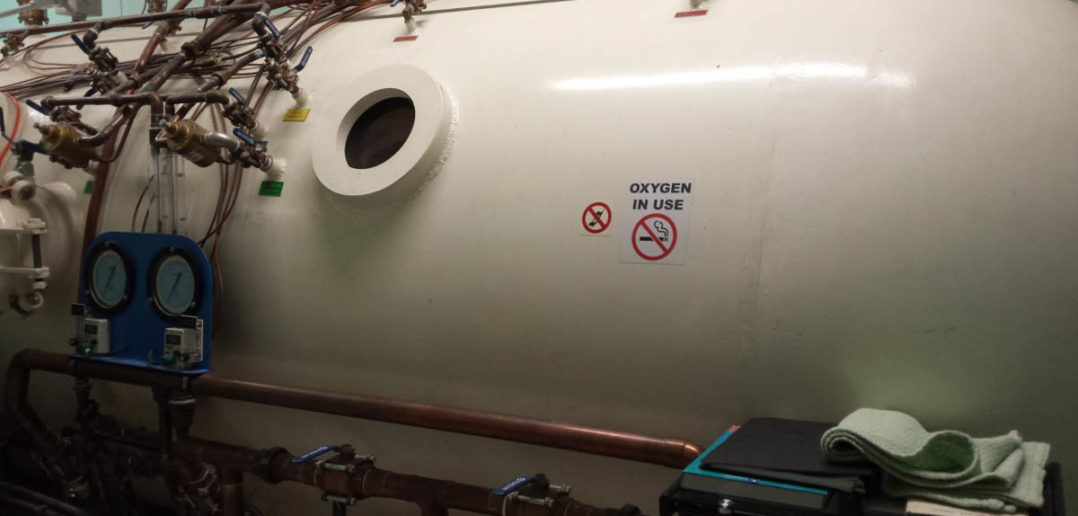
Under hyperbaric oxygenation the entire body is under increased pressure, which accelerates healing. Hyperbaric oxygen can reach areas of the body that may be compromised by circulatory problems, wounds, or cut blood vessels. Hyperbaric oxygen jump-starts the process of healing.
Reimer says oxygen therapy can benefit many ailments, including brain injuries and strokes. He cured his father-in-law from a stroke. The earlier the problem is addressed the less treatment is required.
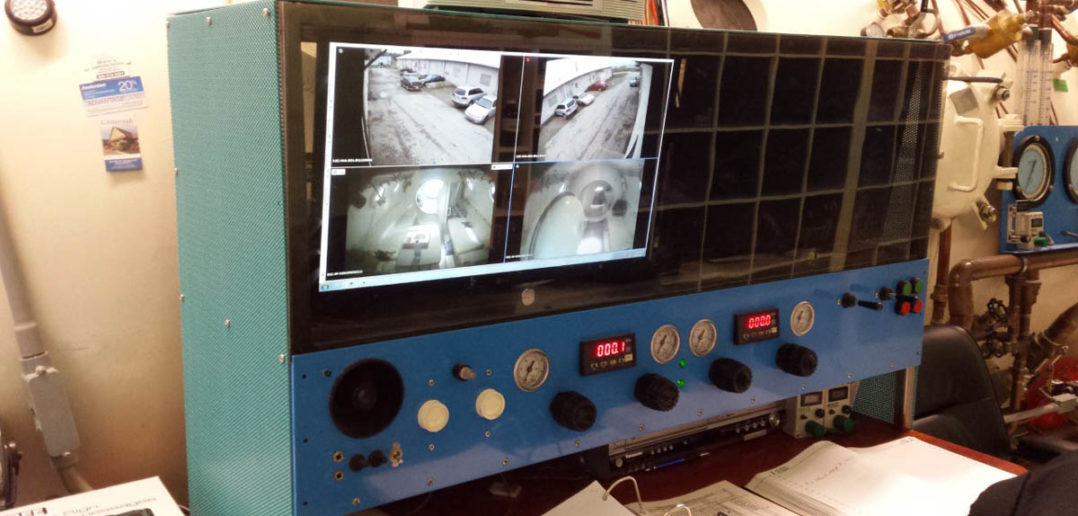
“We treated an Alzheimer’s patient five or six years ago and he never had to be committed. We caught him early. They had a good relationship until the end. He died of old age.”
Reimer says he encourages dive clubs to come to his Elmira facility for hyperbarics training to get an idea of where their comfort zone is. “That creates a safety margin. They learn what feels comfortable.”






